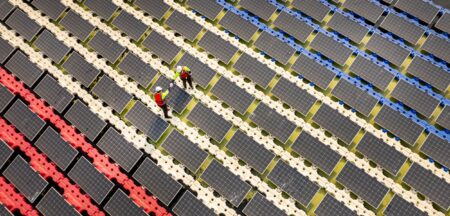
Eskom’s electricity tariffs may increase by 25,3% from 1 April for its direct customers and 1 July for municipal customers if an application to the national regulator is approved.
The increase has the full support of government’s war room.
It is aimed at paying Eskom’s diesel bill in order to avoid load shedding and to extend and conclude short-term agreements to buy electricity from other producers (short-term power purchase programme, or STPPPs), including companies such as Sasol and Sappi as well as municipal generators like City Power. It also makes provision for the increased environmental levy announced by finance minister Nhlanhla Nene during his budget speech.
News of the application came after the City of Cape Town issued a statement on Thursday night in which it expressed its concern that many customers won’t be able to pay the huge increase. The city also apologised to its customers for having to table a draft budget next week that reflects electricity tariffs that may increase further if the Eskom application is approved.
Moneyweb reported in February that Eskom may be applying for a re-opener, but neither Nersa nor Eskom would respond to questions at the time.
Eskom is now asking for a selective re-opener of the tariff determination that was earlier granted for the five years from 1 April 2013 to 31 March 2018. An annual tariff increase of 8% was then granted. The increase for 2015/2016 was later increased to 12,69% to compensate Eskom for under-recovery in the previous tariff period.
If the new application is granted, it would apply to the remaining three years of MYPD3. It would see tariffs increase by 25,3% in 2015/2016, drop by 3,24% in 2016/2017 and increase by 7,26% in 2017/2018. These are the total proposed increases, including those granted earlier.
Eskom says in a submission to the local government association Salga and national treasury dated 16 March that government won’t give any further equity injections over and above the promised R20bn that will be paid over in the new financial year.
It says credit downgrades have seen it at the limit of any significant borrowings and even if there was appetite among financiers, the cost would be too high.
Downgrade
The news also broke on Thursday that Standard & Poor’s has downgraded Eskom to “junk” status, a mere four months after Moody’s did the same.
Eskom further states that it is on a drive to save between R50bn and R60bn over five years and has reprioritised capital spending, bringing the total down from R337bn to R300bn.
It says a full re-opener of the MYPD3 tariff determination would take 12 to 18 months and therefore the war room suggested a selective re-opener.
The basis for the re-opener is that Eskom assumed in its MYPD3 application that Medupi, Kusile and Ingula projects would have delivered power and therefore no provision was made for the extensive use of its diesel-gobbling open-cycle gas turbines and STPPPs.
Following the deterioration of its generation fleet, the explosion at its Duvha plant, the collapse of the coal silo at Majuba, issues with coal quality and delays in the completion of the new build programme, the use of the gas turbines and STPPPs are the only way to keep the lights on.
Eskom says the war room took the decision that it should continue to use these measures, because the cost of power interruptions to the economy is even higher than the additional costs incurred for diesel purchases and STPPPs.
The utility asks for an additional R32,9bn for diesel and R19,9 bn for STPPPs over the next three years.
Eskom acknowledges that submitting the application this late means it would not be able to comply with provisions of the Municipal Finance Management Act to table proposed bulk tariff increases to municipalities in parliament before 15 March.
It says it would have to obtain special permission from the minister of finance for late submission.
It asks for the cooperation of local government stakeholders to enable implementation on 1 July, but says if that cannot be achieved, implementation on 1 September should be considered.
As the City of Cape Town indicated, the municipal budget cycle is far advanced and all the municipalities countrywide would have to revise their budgets as soon as there is finality regarding Eskom’s application.
- Download the Submission of proposed price increase document here
- This article was republished from Moneyweb with permission




